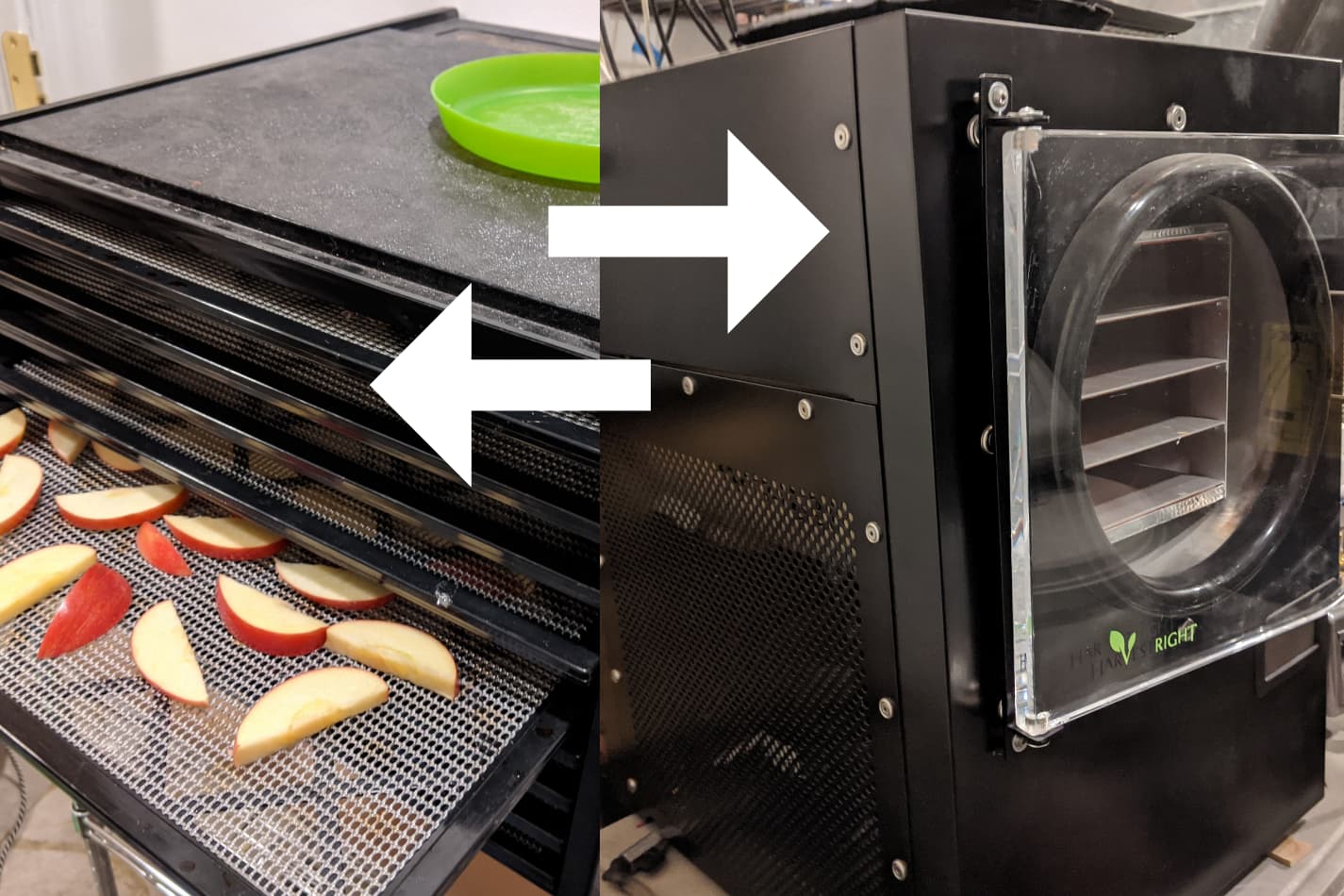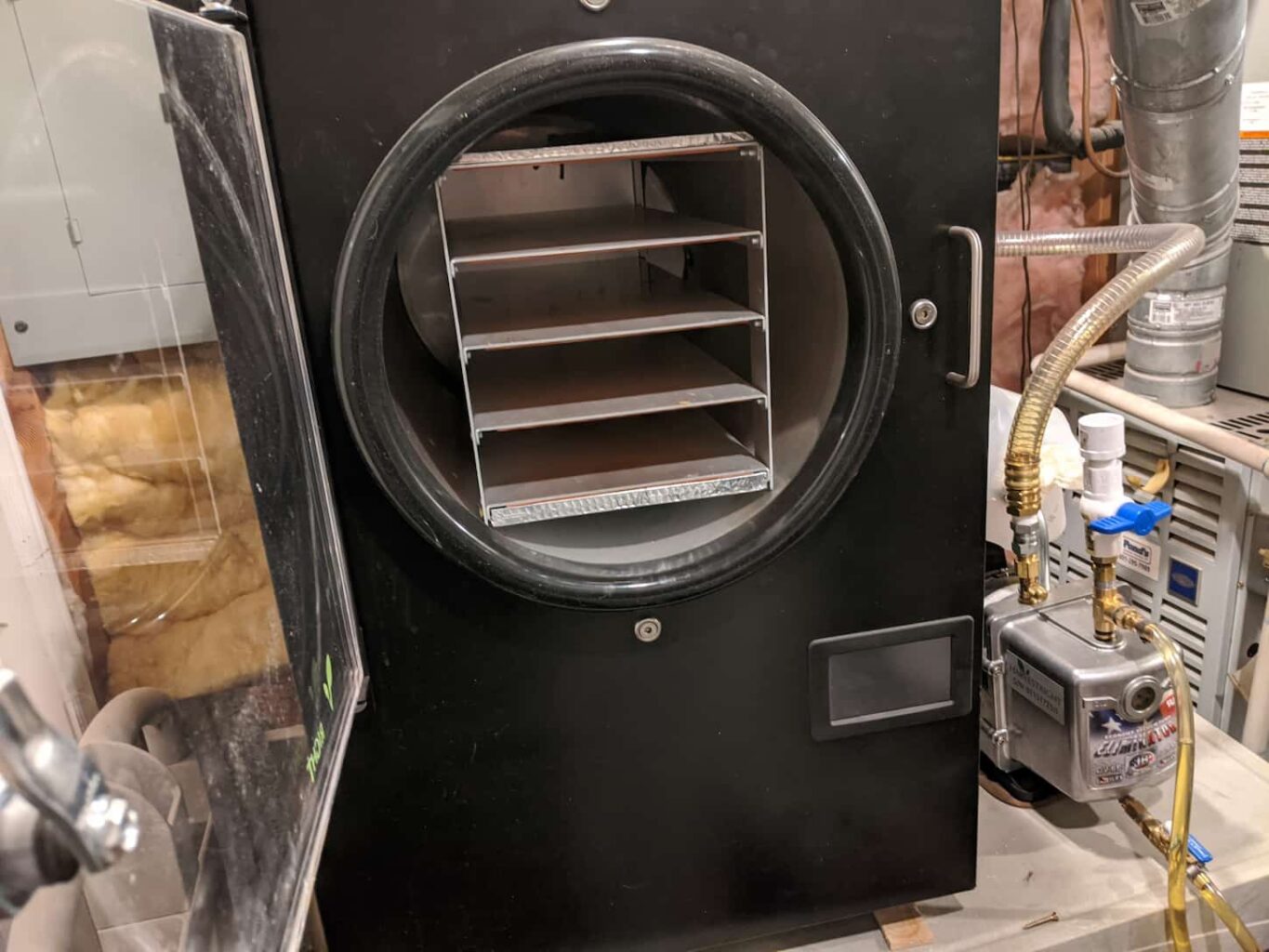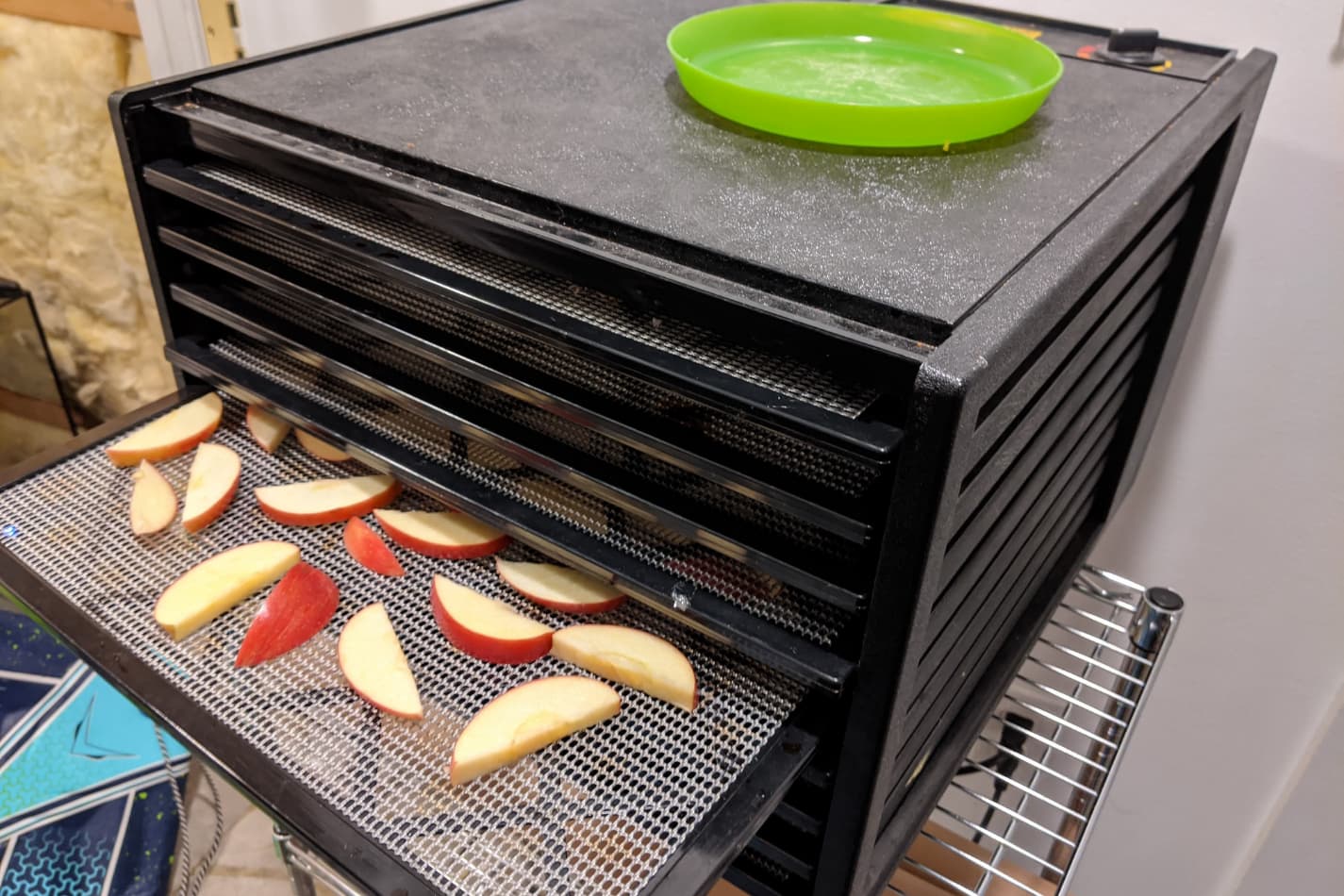When it comes to preserving food there are many options to consider, but the most effective are often dehydration and freeze-drying. But if you had to pick one method, is it better to get a small freeze-drier or a big food dehydrator?
If you can only get one, then, in my experience, a small freeze-dryer is a more versatile and useful single piece of equipment than a large dehydrator. However, if you can get both, then they’re both amazing to have.
- Small home freeze-dryers are great for preserving food and retaining its original nutritional value. Freeze-dried food has a unique taste and texture and can be used much like its fresh counterparts. It stores for up to 25 to 30 years.
- Dehydrators are far more cost-effective, but dehydrated food does not retain as many nutrients nor does it store as long as freeze-dried foods. Dehydrated foods can last 5 to 10 years.
Please keep in mind, too, that budget is always a consideration. So, let’s talk more about whether it’s better to use a home freeze-drier or a big food dehydrator!

What Is Better a Dehydrator or a Freeze Dryer?
Freeze-dryers and food dehydrators use different methods of preservation and are better suited to different types of foods depending on their water content, texture, and taste. Which is better depends on the family’s food preferences, the food’s composition, and food preparation.
- In my opinion and experience, if I could only have one of my two machines and the budget wasn’t an issue, then I’d pick the freeze dryer over the dehydrator. The food stores easily are far more versatile and are shelf-stable.
- However, if budget is a concern, then I’d buy the dehydrator first while saving up to buy a freeze dryer, as a dehydrator costs a fraction of what a freeze-dryer does. This is the order we bought our equipment in.
Need to know freeze dryer costs? Read my articles, How Much Does a Freeze Dryer Cost? 28 Examples and Factors and How Much It Costs To Run A Freeze Dryer: The Complete Guide for all the answers!
Freeze-dryers use the process of lyophilization which removes up to 95% of the water content from food. This is achieved by freezing, sublimation, and absorption. On the other hand, dehydrators use low levels of heat to evaporate water. About 80% of water is removed from food using this method.
Due to the difference in the preservation methods, some foods are better suited to one method.
- For example, foods that are high in fats and oils don’t freeze-dry well.
- When it comes to dehydration, frozen foods, dairy, raw eggs, and cheese do not preserve well.
Some foods taste better or are more fun to eat when preserved using a certain method. For example, freeze-drying retains 97% of the food’s nutritional value whereas dehydration only retains 60%.
This makes freeze-drying a better option for preserving vegetables to use in soups, salads, and stews. However, dehydrated fruit can be a tasty snack!
When considering the intended consumption, it’s also important to think about the ideal storage period. Freeze-dried foods can last anywhere between 15 and 25 years, while dehydrated foods last between one and five years, or sometimes 5 to 10 years.
The ideal storage period depends on individual needs and preferences. Some people may prefer to store food for longer periods, while others may not have the physical storage capacity to do that.
More practical aspects to consider include the time needed to preserve the food, the cost, and the required devices. Freeze-dryers are generally far more expensive than dehydrators, and they come with associated costs such as mylar bags and oxygen absorbers.
Dehydrators may be cheaper overall, with lower running costs and cheaper devices.
Can You Freeze-Dry in a Food Dehydrator?
Food dehydrators cannot be used as freeze-dryer. The freeze-drying process is vastly different from dehydration; devices designed for dehydrating food do not have the appropriate capabilities for freeze-dried food.
Wouldn’t it be wonderful if you could use one device for both dehydrating and freeze-drying? Unfortunately, dehydrators cannot be used to freeze-dry food as the process of dehydration differs from that of freeze-drying.
At this time, the only device capable of freeze-drying foods is a dedicated freeze-dryer. You can read more about why that is in this article I wrote: Can You Freeze Dry In An Instant Pot, Air Fryer, Or Without A Machine?

Are Dehydrators and Freeze-Dryers the Same?
Dehydrators and freeze dryers ultimately accomplish the same task – preserving food. However, the two methods are quite different from each other, and the devices designed to carry out these processes are programmed differently.
Home freeze-dryers and big food dehydrators are designed to carry out a specific process. For dehydration, this process involves using a constant source of low-grade heat to cause the water in the food to evaporate.
This removes less water than freeze-drying which removes 95% of the water through a process called lyophilization. Small home freeze-dryers use a cycle of heating, cooling, and a vacuum to freeze-dry the food.
Dehydration devices also have a wider range when it comes to run time. These devices can run for between one and thirty-six hours, while freeze-dryers run for between 20 and 40 hours.
For those that want to hear more, we’ve covered the topic of dehydrators vs. freeze-dryers in greater detail in this blog post: Freeze Dryer Vs. Dehydrator: What’s the Difference?

Key Takeaways and Next Steps
At the end of the day, freeze-dryers and food dehydrators are just different methods of preserving food. Both have their pros and cons therefore the ‘right method’ often depends on the type of food being preserved and its intended purpose.
When it comes to finding the right freeze-dryer, the Harvest Right freeze-dryer is an excellent choice. The company is known for its efficient, innovative, and durable freeze-dryers.
We have a medium-sized Harvest Right freeze dryer (click here to shop Harvest Right’s site), and it’s honestly the best size possible. We can get a ton of food freeze-dried and stored, but we didn’t have to find an extra 20 amp, 110-volt plug, which would have required some electrical work.
In terms of dehydrators, the Excalibur brand has a wonderful line of dehydrators. These dehydrators offer more capacity on the dehydrator racks, allowing you to preserve more food faster. With their large range of dehydrators, there’s something for everyone.
This is the Excalibur dehydrator we have (link takes you to Amazon), and we love it. It’s available directly or on Amazon, so be sure to shop around for the best price.
Or if you’ve already got your food storage equipment picked out, then go give this article a read next: Freeze Dryer VS Freezer – 7 Differences That Matter. Some of those differences will surprise you, so be sure to check them out next.
Resources
Learning from your own experience is essential, but learning from others is also intelligent. These are the sources used in this article and our research to be more informed as homesteaders.
- Harvest Right. “Home Freeze Dryers.” Harvest Rightâ„¢ | Home Freeze Dryers | Freeze Dried Food Storage, 10 Jan. 2020, harvestright.com/home-freeze-dryers.
- “Lyophilization of Parenteral.” FDA, 11 Nov. 2014, www.fda.gov/inspections-compliance-enforcement-and-criminal-investigations/inspection-guides/lyophilization-parenteral-793.
- “Which Food Dehydrator Is Best in 2022, Excalibur or Nesco?” Backpacking Chef, www.backpackingchef.com/food-dehydrator.html. Accessed 25 Feb. 2022.